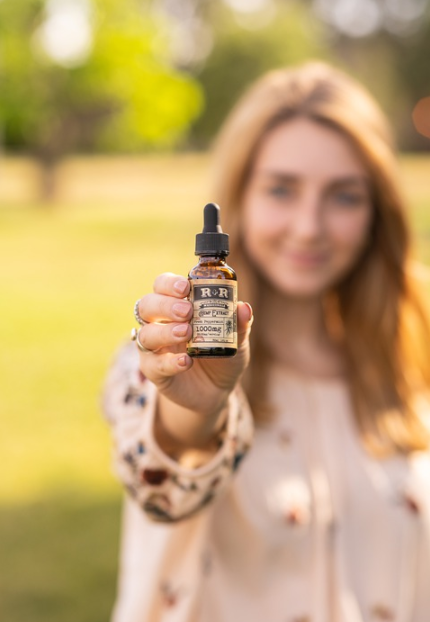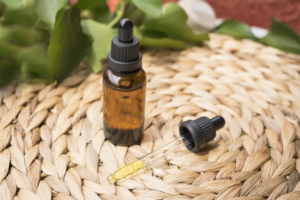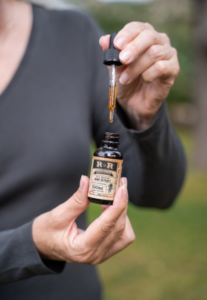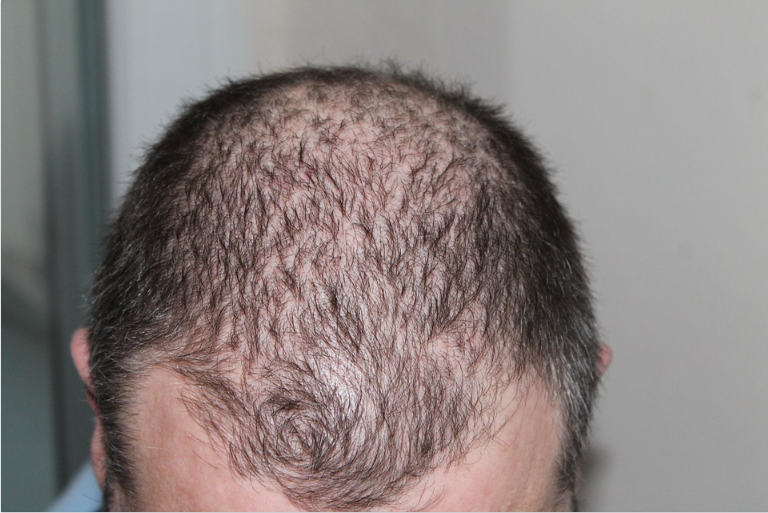Recognizing the Signs of Sensitive Skin

Sensitive skin can be a challenging condition to manage, often leading to discomfort, irritation, and frustration. Whether you’re new to the concept of sensitive skin or have been dealing with it for years, recognizing its signs is the first step in finding effective solutions. In this article, we’ll explore the common indicators of sensitive skin, helping you identify if your skin falls into this category and providing tips on how to care for it. You can also read How to Identify Sensitive Skin for more information.
What Is Sensitive Skin?
 Sensitive skin is characterized by an increased reaction to various factors, such as environmental changes, skincare products, or even certain fabrics. People with sensitive skin may experience redness, irritation, or discomfort more readily than those with normal skin. It’s important to note that sensitive skin can manifest in different ways for different people, making it essential to understand your skin’s unique signals.
Sensitive skin is characterized by an increased reaction to various factors, such as environmental changes, skincare products, or even certain fabrics. People with sensitive skin may experience redness, irritation, or discomfort more readily than those with normal skin. It’s important to note that sensitive skin can manifest in different ways for different people, making it essential to understand your skin’s unique signals.
Common Signs of Sensitive Skin
Redness and Inflammation
One of the most noticeable signs of sensitive skin is persistent redness. This can appear on the cheeks, nose, or forehead and may be accompanied by inflammation. If your skin often looks flushed or feels warm to the touch, it may be sensitive.
Irritation and Itching
If your skin frequently feels itchy or irritated, it’s a strong indication of sensitivity. This can occur after applying certain skincare products, using harsh soaps, or even after exposure to sweat or heat. If you find yourself scratching or feeling an uncomfortable tingle, your skin might be trying to tell you something.

Dryness and Flakiness
While dryness can occur in any skin type, sensitive skin often experiences a heightened level of dryness and flakiness. You might notice rough patches or dry spots that are more pronounced than usual. This dryness can lead to further irritation, creating a frustrating cycle.
Burning or Stinging Sensations
Sensitive skin can react strongly to certain ingredients or environmental changes, leading to sensations of burning or stinging. This might happen after applying a new product, washing your face with hot water, or spending time in the sun. If you frequently experience discomfort when using skincare products, it’s time to pay attention to your skin’s needs.
Increased Reaction to Skincare Products
If your skin tends to react negatively to new products, even those labeled as gentle or hypoallergenic, it may be sensitive. Common reactions include redness, swelling, or even breakouts. Keeping a journal of your skincare products and your skin’s reactions can help you pinpoint what may be triggering your sensitivity.
Allergic Reactions
If you find that your skin often develops rashes, hives, or other allergic responses to various substances, it may be sensitive. Common allergens include certain fabrics, fragrances, and skincare ingredients. Identifying and avoiding these triggers can significantly improve your skin’s condition.

How to Care for Sensitive Skin
If you recognize these signs in your skin, there are steps you can take to manage sensitivity effectively:
- Choose Gentle Products: Look for products specifically formulated for sensitive skin. These are usually fragrance-free, hypoallergenic, and devoid of harsh chemicals.
- Patch Test New Products: Before fully incorporating a new product into your routine, perform a patch test on a small area of your skin to see how it reacts.
- Keep It Simple: Simplify your skincare routine to minimize potential irritants. Stick to the essentials: a gentle cleanser, a moisturizer, and sun protection.
- Hydrate and Nourish: Use hydrating products that contain soothing ingredients like aloe vera, chamomile, or hyaluronic acid to help restore moisture and calm irritation.
- Be Mindful of Environmental Factors: Protect your skin from harsh weather conditions, such as extreme cold or sun exposure. Wearing protective clothing and applying sunscreen can make a big difference.
- Consult a Dermatologist: If your skin is persistently sensitive and you struggle to manage it, consider seeking professional advice. A dermatologist can help identify underlying conditions and recommend appropriate treatments.
In Conclusion
Recognizing the signs of sensitive skin is crucial for maintaining healthy skin and preventing discomfort. By being aware of the common indicators and adjusting your skincare routine accordingly, you can keep your skin calm and balanced. Remember, everyone’s skin is unique, so take the time to understand your own skin’s needs and respond with care. With the right approach, you can nurture your sensitive skin and embrace a more comfortable, confident you.…


 One of the most critical steps in ensuring your makeup lasts all day is to start with a good primer. Primers provide a base for your foundation and help it stay on longer, so make sure you choose one that is right for your skin type. You don’t need to use a primer every time you put on makeup- but if you’re looking for a look that will last, it’s a must.
One of the most critical steps in ensuring your makeup lasts all day is to start with a good primer. Primers provide a base for your foundation and help it stay on longer, so make sure you choose one that is right for your skin type. You don’t need to use a primer every time you put on makeup- but if you’re looking for a look that will last, it’s a must. Oils on your skin can quickly make your makeup look greasy and cause it to slide off throughout the day. Try carrying blotting papers or oil-absorbing sheets with you to combat this issue. These will help absorb any excess oils and keep your face matte and fresh all day. Also, try to avoid using too many heavy creams or moisturizers, as these can make your makeup slide off more easily.
Oils on your skin can quickly make your makeup look greasy and cause it to slide off throughout the day. Try carrying blotting papers or oil-absorbing sheets with you to combat this issue. These will help absorb any excess oils and keep your face matte and fresh all day. Also, try to avoid using too many heavy creams or moisturizers, as these can make your makeup slide off more easily.
 A med spa can offer many different services to help you feel more
A med spa can offer many different services to help you feel more  If you are looking for a way to change your appearance, then consider getting a new haircut. A new haircut can make you feel like a new person. It can also help you to boost your confidence. If you are unsure what type of haircut you want, consult a professional stylist. They will be able to help you find the perfect haircut for your face shape and personality.
If you are looking for a way to change your appearance, then consider getting a new haircut. A new haircut can make you feel like a new person. It can also help you to boost your confidence. If you are unsure what type of haircut you want, consult a professional stylist. They will be able to help you find the perfect haircut for your face shape and personality. Makeup can help to enhance your features and give you a boost of confidence. If you are unsure how to apply makeup, plenty of resources are available online and in magazines. You can also consult with a makeup artist to get some tips and tricks. However, most people learn by watching their favorite celebrities.
Makeup can help to enhance your features and give you a boost of confidence. If you are unsure how to apply makeup, plenty of resources are available online and in magazines. You can also consult with a makeup artist to get some tips and tricks. However, most people learn by watching their favorite celebrities.
 Cleansing your skin is the first and most crucial step in any skincare routine. However, many people don’t do it properly, which can build dirt, oil, and makeup on the skin. This can clog pores and lead to breakouts. To avoid this, make sure you are using a gentle cleanser that is appropriate for your skin type and cleansing your skin twice a day, morning and night.
Cleansing your skin is the first and most crucial step in any skincare routine. However, many people don’t do it properly, which can build dirt, oil, and makeup on the skin. This can clog pores and lead to breakouts. To avoid this, make sure you are using a gentle cleanser that is appropriate for your skin type and cleansing your skin twice a day, morning and night. Your diet plays a significant role in the health of your skin. Eating plenty of fruits, vegetables, and healthy fats can help to give your skin the nutrients it needs to stay healthy. However, many people don’t eat a balanced diet or eat foods that are bad for their skin.
Your diet plays a significant role in the health of your skin. Eating plenty of fruits, vegetables, and healthy fats can help to give your skin the nutrients it needs to stay healthy. However, many people don’t eat a balanced diet or eat foods that are bad for their skin.





 Besides those three methods, patients could experience pressure dressings. It aims to discoloration in the form of stretchy, elastic material. The dressing can be used in conjunction with silicone gel sheets to flatten and improve the discoloration’s appearance for a period of 6 to 12 weeks. Moreover, some women decided to tattoo their tummy to suit the skin tone. The stuff should blend over and around the scars to help hide them. If the person has keloids, they might try one of these textured products that build layers of texture to camouflage the marks.
Besides those three methods, patients could experience pressure dressings. It aims to discoloration in the form of stretchy, elastic material. The dressing can be used in conjunction with silicone gel sheets to flatten and improve the discoloration’s appearance for a period of 6 to 12 weeks. Moreover, some women decided to tattoo their tummy to suit the skin tone. The stuff should blend over and around the scars to help hide them. If the person has keloids, they might try one of these textured products that build layers of texture to camouflage the marks.
 ModiFace is among those trendy photo editing programs you can download at no cost. The attractiveness program has all of the image editing essentials you will need for facial improvements, from blemish cosmetic and removal try-on to teeth whitening and smoothens skincare tools.
ModiFace is among those trendy photo editing programs you can download at no cost. The attractiveness program has all of the image editing essentials you will need for facial improvements, from blemish cosmetic and removal try-on to teeth whitening and smoothens skincare tools.
 Hemp oil is a superfood that is sometimes confused with the entire marijuana plant. It is essential to see that hemp is not like cannabis, not even the budding plant. The berry used commercially for seeds, oil, and protein powder is a different kind of plant life. The industrial berry is as distinct from the bud as a Chihuahua dog and a Great Dane. Hemp causes no side effects because it contains tiny amounts of THC (tetrahydrocannabinol), the psychoactive part of marijuana that gets people high. Traces of THC left after harvest are removed by washing and pressing the seeds during production. So, if you get a drug test after eating berry products, none of the drug components will show up in your bloodstream. Industrial hemp plants cannot be used to produce illegal drugs. The fact is that hemp oil is extremely beneficial for people, both externally and internally.
Hemp oil is a superfood that is sometimes confused with the entire marijuana plant. It is essential to see that hemp is not like cannabis, not even the budding plant. The berry used commercially for seeds, oil, and protein powder is a different kind of plant life. The industrial berry is as distinct from the bud as a Chihuahua dog and a Great Dane. Hemp causes no side effects because it contains tiny amounts of THC (tetrahydrocannabinol), the psychoactive part of marijuana that gets people high. Traces of THC left after harvest are removed by washing and pressing the seeds during production. So, if you get a drug test after eating berry products, none of the drug components will show up in your bloodstream. Industrial hemp plants cannot be used to produce illegal drugs. The fact is that hemp oil is extremely beneficial for people, both externally and internally. This ointment not only brightens your skin but also quickly eliminates other ailments such as hyperpigmentation, melasma, and acne. It also exfoliates. This ointment is specially designed to reduce dark skin areas. Some of the main ingredients of the cream are hydroquinone. It is best to avoid mercury, steroids, and hydroquinone, as they can induce many fatal infections such as liver injury, thyroid predicaments, and leukemia. This lotion also claims to work as a sunscreen.
This ointment not only brightens your skin but also quickly eliminates other ailments such as hyperpigmentation, melasma, and acne. It also exfoliates. This ointment is specially designed to reduce dark skin areas. Some of the main ingredients of the cream are hydroquinone. It is best to avoid mercury, steroids, and hydroquinone, as they can induce many fatal infections such as liver injury, thyroid predicaments, and leukemia. This lotion also claims to work as a sunscreen.




 New laser techniques can trigger collagen maturation. Collagen is an essential protein that keeps skin firm and wrinkle-free. So, liposuction does not merely remove fat cells in this process; it also allows you to feel and look younger. There is a beautiful reason why liposuction is the most popular procedure today.
New laser techniques can trigger collagen maturation. Collagen is an essential protein that keeps skin firm and wrinkle-free. So, liposuction does not merely remove fat cells in this process; it also allows you to feel and look younger. There is a beautiful reason why liposuction is the most popular procedure today.
 Though a complete set of lashes does not appeal to everybody, acquiring some extra lash section is vital for a formal bridal eye make-up appearance. If you can not do in a complete set, then a few well-placed individual lashes since the outer corner of their eye will expand and provide a more striking make-up appearance.
Though a complete set of lashes does not appeal to everybody, acquiring some extra lash section is vital for a formal bridal eye make-up appearance. If you can not do in a complete set, then a few well-placed individual lashes since the outer corner of their eye will expand and provide a more striking make-up appearance. Employing precisely the identical highlight shade again, dab it in the inner corner of the eye, over the tear duct. This may be combined somewhat across the bottom lash line too. This signature adds warmth to the appearance and provides a new feeling into the eyes. In photos, this will counter any tendency for eyes to vanish to a dimensionless shape, as the points of reflective material in the essential regions will capture the light and attract the eyes living.
Employing precisely the identical highlight shade again, dab it in the inner corner of the eye, over the tear duct. This may be combined somewhat across the bottom lash line too. This signature adds warmth to the appearance and provides a new feeling into the eyes. In photos, this will counter any tendency for eyes to vanish to a dimensionless shape, as the points of reflective material in the essential regions will capture the light and attract the eyes living.




 Slouch boots look like they have come straight from the 1980s, but they’re an ideal pairing with everything from midi dresses, pleated skirts, and pencil jeans. The majority of the wearable variations will be those with neutral suede and leather plus the ones that arrive in mid-high heels. They’re a fantastic alternative for girls with narrow or broad calves because they’re not intended to fit closely to the leg. Should you wear them with a skirt or dress, increase your hemline to keep everything in proportion.
Slouch boots look like they have come straight from the 1980s, but they’re an ideal pairing with everything from midi dresses, pleated skirts, and pencil jeans. The majority of the wearable variations will be those with neutral suede and leather plus the ones that arrive in mid-high heels. They’re a fantastic alternative for girls with narrow or broad calves because they’re not intended to fit closely to the leg. Should you wear them with a skirt or dress, increase your hemline to keep everything in proportion.






 When you alter and fix your appearance to suit your needs or wishes, this will lead to enhanced self-esteem. When there is improved self-esteem in a person’s life, there are a lot of things that will change in their lives. When you are confident in the way that you look, it will make you feel more than better in almost all aspects of life. In other words, you will not feel unsecured about your appearance.
When you alter and fix your appearance to suit your needs or wishes, this will lead to enhanced self-esteem. When there is improved self-esteem in a person’s life, there are a lot of things that will change in their lives. When you are confident in the way that you look, it will make you feel more than better in almost all aspects of life. In other words, you will not feel unsecured about your appearance.







